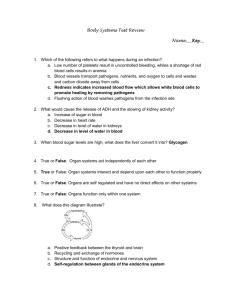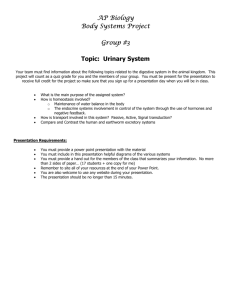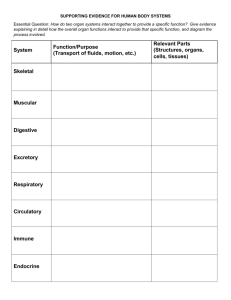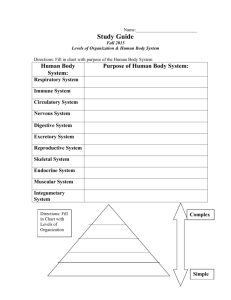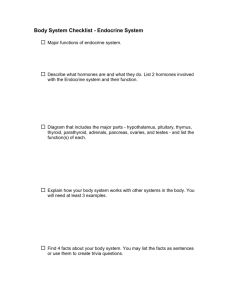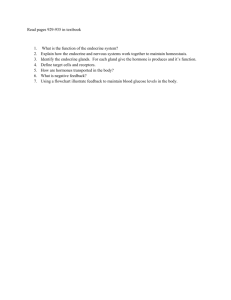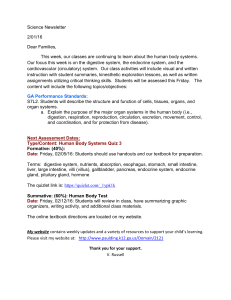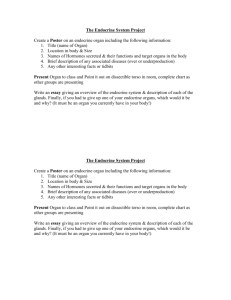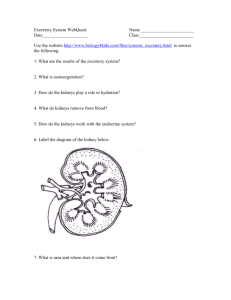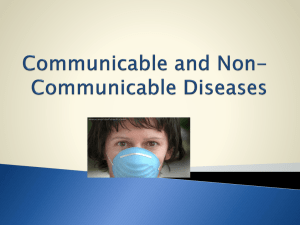Body Systems Test Review Name______________________
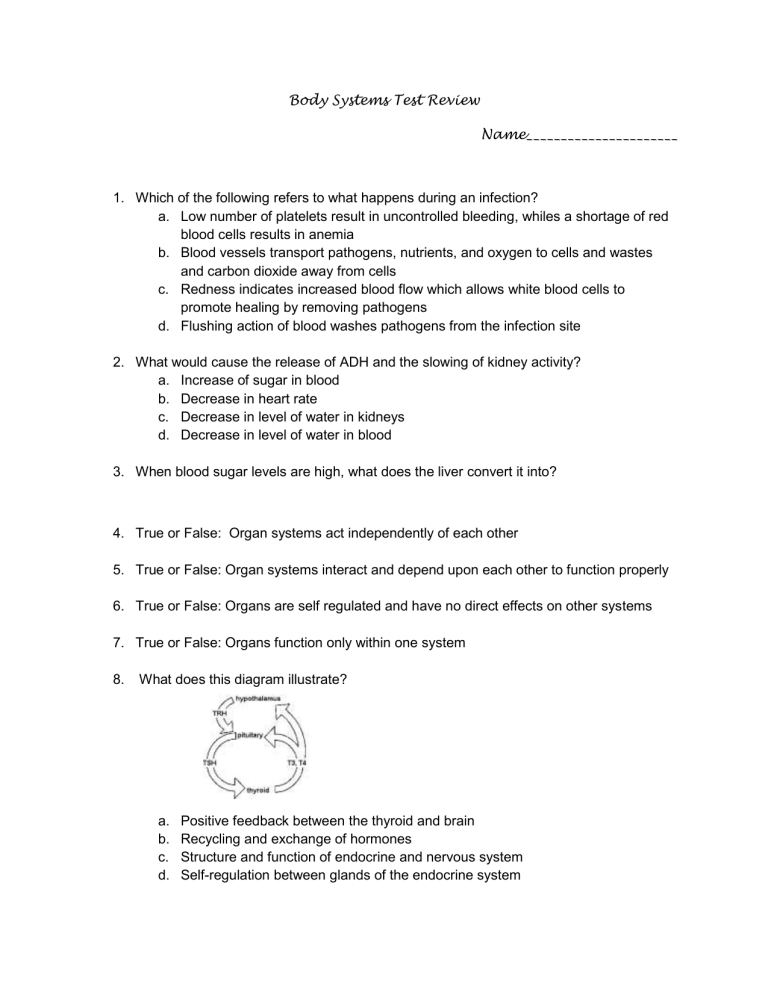
Body Systems Test Review
Name______________________
1. Which of the following refers to what happens during an infection? a. Low number of platelets result in uncontrolled bleeding, whiles a shortage of red blood cells results in anemia b. Blood vessels transport pathogens, nutrients, and oxygen to cells and wastes and carbon dioxide away from cells c. Redness indicates increased blood flow which allows white blood cells to promote healing by removing pathogens d. Flushing action of blood washes pathogens from the infection site
2. What would cause the release of ADH and the slowing of kidney activity? a. Increase of sugar in blood b. Decrease in heart rate c. Decrease in level of water in kidneys d. Decrease in level of water in blood
3. When blood sugar levels are high, what does the liver convert it into?
4. True or False: Organ systems act independently of each other
5. True or False: Organ systems interact and depend upon each other to function properly
6. True or False: Organs are self regulated and have no direct effects on other systems
7. True or False: Organs function only within one system
8. What does this diagram illustrate? a. Positive feedback between the thyroid and brain b. Recycling and exchange of hormones c. Structure and function of endocrine and nervous system d. Self-regulation between glands of the endocrine system
9. What is an analogy that demonstrates the feedback mechanism of the endocrine system?
10. Which system defends the body against the invasion of pathogens?
11. Which system secretes hormones directly into the bloodstream?
12. Which system supplies the blood with oxygen for the production of energy and other body needs?
13. Which system sends and receives vast amounts of information throughout the body?
14. Which hormone stimulates the reabsorption of water in kidney cells?
15. Which system functions as the body’s first line of defense?
16. Describe how the diaphragm moves and what its function is:
17. What organ stores filtered waste in the excretory system?
18. What organ filters waste from the blood? a. Kidneys b. Intestines c. Heart d. Stomach
19. Which describes the interaction between the nervous and excretory system? a. Goosebumps in cold temperature b. Less urine to prevent dehydration c. Eyes squinting in bright light d. Insulin production to control blood sugar levels
20. The body is constantly making small adjustments so that the internal environment is in
____ O ____ E ____ S _____ A _____ I ______
